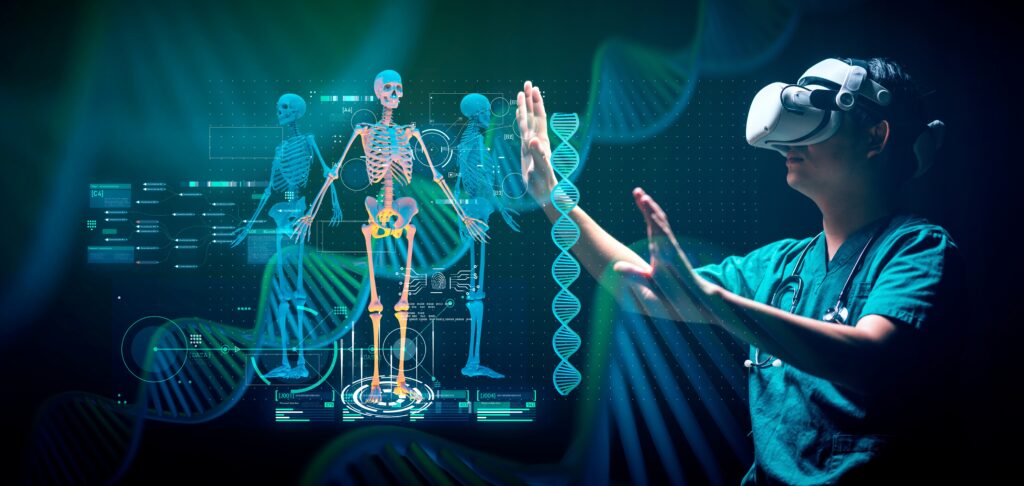
AI Revolutionizing Healthcare: From Disease Diagnosis to Personalized TreatmentsAI Revolutionizing Healthcare: From Disease Diagnosis to Personalized Treatments Artificial Intelligence (AI) is profoundly transforming healthcare, revolutionizing the way diseases are diagnosed and treatments are tailored to individual patients. Disease Diagnosis AI algorithms can analyze vast amounts of medical data, such as patient records, imaging scans, and genetic information, to identify patterns and make accurate diagnoses. This can improve the early detection of diseases, even before symptoms appear. * Image recognition AI: Software analyzes medical images, such as X-rays, CT scans, and MRIs, to detect anomalies that may indicate disease. * Natural language processing AI: Algorithms process medical text, such as patient notes, to identify key symptoms and potential diagnoses. Personalized Treatments AI can create personalized treatment plans based on individual patient characteristics. By analyzing genomic and health data, algorithms can predict how patients will respond to different medications and treatments. * Precision medicine: AI helps identify genetic markers that influence disease progression and treatment efficacy, enabling the development of targeted therapies for specific patient groups. * Tailored care: AI algorithms can adjust treatment plans dynamically based on real-time data, such as patient monitoring devices and wearable sensors. Other AI Applications in Healthcare Beyond disease diagnosis and personalized treatments, AI is also revolutionizing other aspects of healthcare: * Drug discovery and development: AI accelerates the research and development of new drugs by identifying promising compounds and predicting their efficacy. * Telemedicine: AI-powered virtual consultations and remote monitoring enable patients to access healthcare services conveniently. * Administrative tasks: AI automates tasks such as medical billing, scheduling appointments, and managing patient records, freeing up healthcare professionals for patient care. Benefits of AI in Healthcare The adoption of AI in healthcare offers numerous benefits: * Improved patient outcomes: AI algorithms can assist in early detection and personalized treatments, leading to better health outcomes. * Reduced healthcare costs: AI can optimize resource allocation and reduce unnecessary tests and procedures. * Increased healthcare accessibility: Telemedicine and AI-powered tools make healthcare more accessible to remote and underserved communities. Challenges and Considerations While AI holds immense promise, there are challenges to consider: * Data privacy and security: AI algorithms rely on vast amounts of sensitive patient data, which must be protected from unauthorized access. * Bias and algorithms: AI algorithms can inherit biases present in the data they are trained on, leading to unfair or discriminatory outcomes. * Regulatory and ethical considerations: AI-assisted decision-making requires clear ethical guidelines and regulatory oversight to ensure its responsible use. Conclusion AI is revolutionizing healthcare, enabling more accurate disease diagnoses, personalized treatments, and innovative healthcare solutions. By leveraging the power of AI in a responsible and ethical manner, healthcare professionals can improve patient outcomes, reduce costs, and transform the healthcare experience for all.
Posted inNews